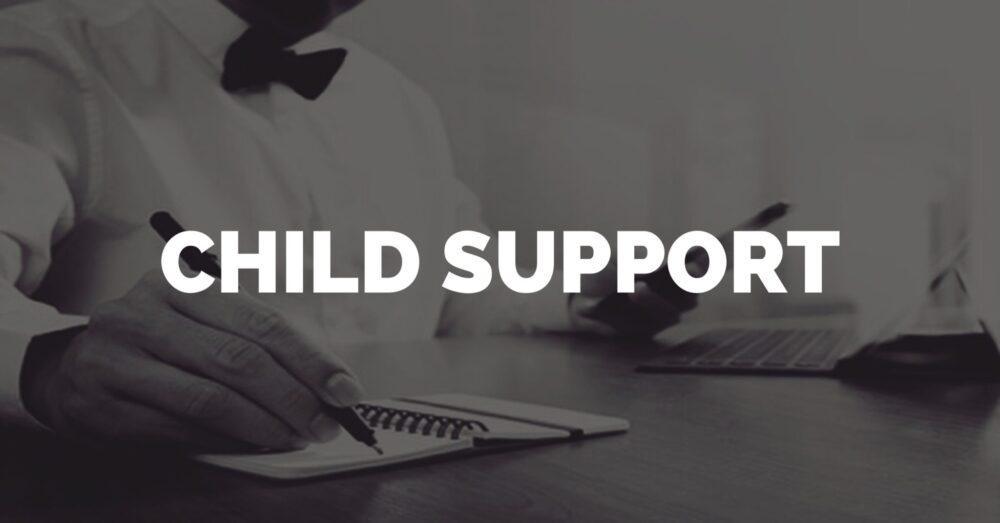
When one or both parents move to a new state, an existing child support order may still need to be enforced, or the move may create grounds for a modification. The process becomes a little more complicated when dealing across the state lines, but all parties generally have the same rights as they would if they had remained in the same state.
How Do You Enforce a Child Support Order Across State Lines?
The Florida Department of Revenue helps collect child support payments in Florida for both Florida child support orders and out-of-state child support orders. In many cases, you simply need to provide the child support order.
The Uniform Interstate Family Support Act gives the Florida Department of Revenue and Florida courts the power to enforce out-of-state court orders. Similarly, the counterpart agencies and courts in other states can enforce Florida support orders against parties living in those states. The various state agencies work together so that even when one doesn’t have complete jurisdiction, they will help you work with the agency that does.
Which Court Resolves Disputes?
The court that originally issued the child support order usually retains jurisdiction even after a parent moves. This means that in the event of non-payment or other disputes, you would return to the original court. In limited cases, the original court may not have jurisidiction over the noncustodial parent. In those situations, you can seek to have the noncustodial parent’s local court enforce the original child support order.
How Do You Change a Child Support Order After a Parent Switched States?
An interstate move often means a change in job status or parenting arrangement that could trigger a need to modify a child support order. In most cases, the original court retains jurisdiction over any modification proceedings. Two exceptions are if both parents consent to use a different court or if neither the parents nor the children are still living within the jurisdiction of the original court.
Even if you go to court in a new state, the original state’s laws will usually apply. For example, Florida child support orders usually run until the child’s 18th birthday or high school graduation, while other states allow child support until age 21. If you move from Florida to one of those states, the child support order won’t extend until age 21. If you move from one of those states to Florida, the original termination age will apply.
FAQs Child Support Court Order Law
To ensure that children have the necessary resources for a stable upbringing, child support plays a critical component to securing the financial well-being of children. However, there are times when a parent fails to fulfill their support obligations, leaving custodial parents with the challenge of addressing unpaid child support. Here, we answer some common questions that parents may have about their rights, options, and steps to take when child support is not being paid. Working with a Tampa, FL child support court order lawyer can be an essential step in understanding these options and moving forward.
What Are My Options If Child Support Is Not Being Paid?
If child support payments are not being made, you have several options available to help resolve this issue. The first step is often to contact your local child support enforcement agency, which can assist with finding the non-paying parent, assessing their employment, and arranging collection methods for the overdue payments. Enforcement agencies have access to a variety of tools, such as wage garnishment, license suspension, and even tax refund interception. While the process may take time, it provides a structured approach to recovering unpaid child support.
How Can I Enforce A Child Support Order?
The court system can help enforce a child support order when informal efforts to collect child support have not worked. By petitioning the court for assistance, a judge can review the situation and issue orders to enforce compliance. Common measures include wage garnishment, property liens, and intercepting tax refunds. In some cases, the judge may issue a contempt of court order, which can lead to further penalties for the non-compliant parent. This formal enforcement process is often an effective way to address overdue child support and ensure the original order is respected.
What Legal Actions Can I Take For Unpaid Child Support?
If the non-paying parent continues to withhold support, filing a lawsuit may be appropriate. Courts can apply several enforcement tools to compel payment, such as seizing assets or adding interest charges on overdue support. Legal action may also involve a judge assigning penalties or additional measures to encourage the non-paying parent to fulfill their obligation. Each case is unique, so it may be beneficial to discuss these options with a Tampa child support court order lawyer to determine the best approach for your specific situation.
Can Child Support Payments Be Taken From The Non-paying Parent’s Wages?
Yes, wage garnishment is a common method to collect unpaid child support. Courts can order wage withholding, which automatically deducts support payments directly from the non-paying parent’s paycheck, ensuring regular payment. This approach is generally very effective and continues until the court order is satisfied. Wage garnishment can also apply retroactively to cover past-due amounts, offering an efficient solution for maintaining consistent payments.
What Happens If The Other Parent Moves Out Of State To Avoid Paying Child Support?
Fortunately, federal and state laws provide protection in this scenario. The Uniform Interstate Family Support Act ensures that child support orders are enforceable across state lines, preventing parents from avoiding their obligations by moving. With this law, custodial parents can work with local authorities to locate and enforce payments, even if the non-paying parent resides in another state. This offers an important tool to pursue unpaid child support, regardless of the distance involved.
Taking Action To Secure Your Child’s Support
Support is available to parents who are facing unpaid child support issues, a legal professional can assist you in taking steps to secure the payments you are owed. Addressing these issues can seem challenging, but with the guidance of a knowledgeable Tampa child support court order lawyer, you can face the process more confidently. Serving clients across Florida and North Carolina, our friends at The McKinney Law Group understand these challenges and are here to offer their support. Don’t hesitate to reach out and take the first step toward ensuring the financial security your child deserves, our team offers complimentary consultations.
To learn more, talk to a Divorce Lawyer in Tampa.

divorce lawyer Tampa
If you have questions for a Tampa divorce lawyer, or are unaware of the terms and conditions of a Tampa divorce, talk to, and retain, a family law attorney who can help. Contact Damien McKinney of The McKinney Law Group to discuss your case further. He can be reached by phone at 813-428-3400 or by e-mail at [email protected]
